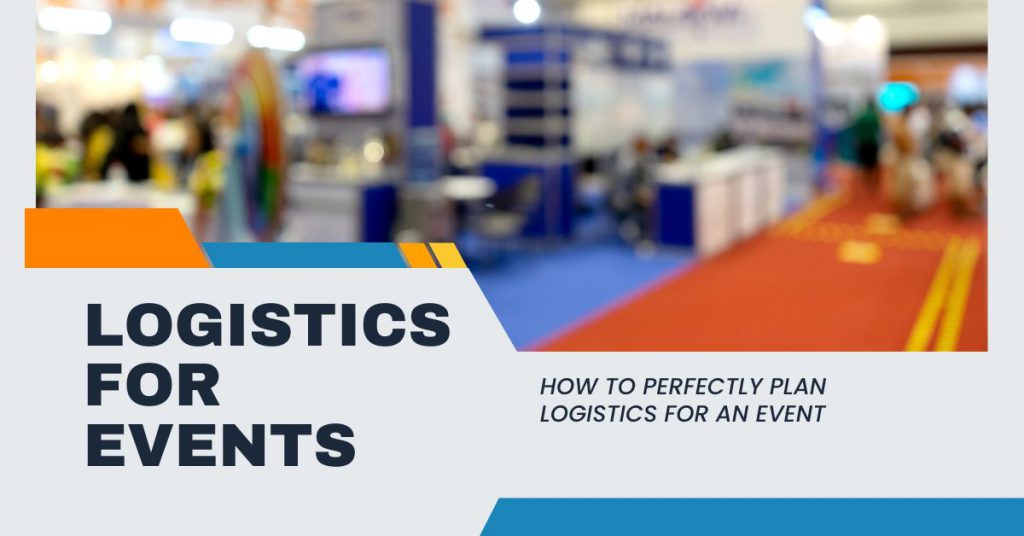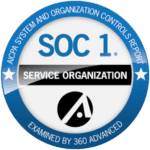Introduction
Organizing a successful event requires meticulous planning, and one of the most critical aspects is logistics for an event. Proper logistics management ensures that all elements—transportation, venue setup, equipment, and attendee experience—are well-coordinated. Whether you’re planning a corporate conference, a music festival, or a wedding, following a structured logistics plan will ensure a seamless event execution.
Table of Contents
- Understanding Event Logistics
- Key Elements of Event Logistics
- Creating a Logistics Plan
- Using Technology to Streamline Logistics
- Challenges in Event Logistics
- Conclusion
Understanding Event Logistics
Event logistics encompass all the processes involved in planning and executing an event, from transportation and equipment handling to crowd control and vendor coordination. Efficient logistics management ensures that attendees have a smooth experience while keeping costs under control.
Key Elements of Event Logistics
To ensure a successful event, logistics planning should focus on these core elements:
Venue Selection and Setup
Choosing a suitable location is paramount to the success of your event. The venue should align with the theme and purpose of the event while accommodating the expected number of attendees. After selecting the location, it’s essential to coordinate the setup of essential elements:
- Staging: Ensure that the stage is appropriately positioned for visibility and accessibility, considering both the audience and speakers.
- Lighting: Plan for adequate lighting that enhances the atmosphere and accommodates live performances or presentations.
- Seating Arrangements: Design seating layouts that facilitate engagement, networking, or the type of interaction desired, whether it’s theater-style, classroom-style, or a more casual arrangement.
Transportation and Parking
Transportation and parking logistics are critical to ensuring guests arrive smoothly and on time. Key aspects to focus on include:
- Guest Transportation: Consider arranging shuttles or rideshare partnerships to minimize parking demands and enhance convenience for attendees.
- VIP Transport: Plan for exclusive transportation options for speakers, sponsors, or key attendees to ensure they receive a premium experience.
- Parking Facilities: Secure adequate parking spaces, and if applicable, create designated areas for different types of vehicles (e.g., VIP, staff, or general attendees). It’s beneficial to have clear signage and personnel to direct traffic.
Catering and Hospitality
Food and beverage services can significantly impact the attendee experience. Effective management here includes:
- Vendor Selection: Partner with reliable catering services that can meet the event’s dietary requirements and provide high-quality food and beverages.
- Menu Planning: Curate menus that reflect the event’s theme while catering to various dietary preferences (vegan, gluten-free, etc.).
- Seamless Service Coordination: Ensure that service staff are well-trained and that the catering timeline is synchronized with the event schedule, enabling a fluid flow of food service.
Equipment and Technology
Having the right equipment is vital for delivering a successful event. Coordinate the following elements:
- Audio-Visual (AV) Systems: Arrange for high-quality sound and visual systems that are appropriate for the venue size and type of presentations or performances.
- Wi-Fi Connectivity: Ensure robust internet connectivity for both attendees and presenters, considering potential demands for streaming or social media engagement.
- Backup Power Sources: Have generators and backup power solutions in place to guarantee that the event can continue without interruption, especially for outdoor events.
Security and Crowd Management
Prioritizing safety is essential for any event. Effective security and crowd management practices include:
- Security Checkpoints: Establish security entry points to screen attendees and monitor access to restricted areas.
- Emergency Planning: Develop and communicate emergency procedures, including evacuation routes and first-aid stations.
- Crowd Control Measures: Design a clear crowd flow plan to prevent bottlenecks and ensure that attendees move easily through the venue, especially during peak times. By paying attention to these critical elements of event logistics, you can create a well-organized and memorable experience for all participants.
Creating a Logistics Plan
A well-structured logistics plan is the backbone of a successful event. Here’s a detailed breakdown of the steps involved in crafting an effective logistics strategy:
1. Set Clear Objectives
Before diving into the logistics, it’s essential to establish clear objectives for your event. These goals will guide all planning aspects. Consider the following:
- Define the Purpose: Is the event meant for educational purposes, networking, product launches, or entertainment? Clearly articulate the primary goals.
- Identify Target Audience: Understanding who will attend helps shape your logistical decisions, including venue selection, catering, and marketing strategies.
- Logistical Needs Assessment: Based on the event’s purpose, outline specific logistical needs such as equipment, capacity, and staff requirements.
2. Develop a Timeline
Creating a detailed timeline is crucial to ensure everything stays on track. Follow these guidelines:
- Outline Key Milestones: Identify important dates such as booking the venue, securing vendors, and completing promotional activities.
- Establish Deadlines: Assign deadlines for important tasks to maintain accountability. This might include finalizing the guest list or confirming catering menus.
- Track Progress: Use project management tools or apps to monitor progress on each task, ensuring that timelines are adhered to and adjustments are made as necessary.
3. Allocate Resources
Proper resource allocation ensures that all aspects of the event are adequately covered. This requires:
- Assigning Roles and Responsibilities: Clearly define who is responsible for each task, from logistics coordination to vendor management and guest relations.
- Budgeting Requirements: Create a budget that outlines costs associated with each resource—venue, catering, technology, staffing, etc.—and track it meticulously.
- Utilizing Volunteers: If applicable, ensure that volunteers are assigned specific roles and provided with the necessary training and resources for their tasks.
4. Coordinate with Vendors and Suppliers
Effective vendor coordination is essential for timely execution. Address the following:
- Communication Plan: Establish a clear communication channel with all vendors to ensure everyone is on the same page regarding requirements, timelines, and expectations.
- Delivery Schedules: Create and confirm schedules for delivery and setup of all logistical elements such as catering, equipment, and decorations.
- Vendor Contracts: Ensure that all contracts are reviewed, signed, and that cancellation policies are understood to avoid any last-minute issues.
5. Plan for Emergencies
Having contingency plans in place is vital for managing unforeseen circumstances. This involves:
- Identifying Potential Risks: Assess risks associated with the venue (like power outages, equipment failures, or severe weather) and create guidelines to mitigate these risks.
- Developing Emergency Protocols: Clearly outline emergency procedures including evacuation plans, communication strategies, and designated first-aid stations.
- Regular Training for Staff: Conduct training sessions with staff and volunteers to familiarize them with emergency procedures, ensuring they can respond effectively if the need arises.
By following these detailed steps to create a comprehensive logistics plan, you can ensure a smooth execution and an unforgettable experience for all attendees at your event.
Using Technology to Streamline Logistics
In the digital age, technology plays a critical role in enhancing logistics efficiency for event planning. Here’s a deeper look at some of the most effective tools and their benefits:
Event Management Software
Platforms such as Cvent and Eventbrite are indispensable for event organizers. These solutions offer comprehensive tools for managing various aspects of your event, including:
- Registration Management: Streamline the registration process with user-friendly interfaces and secure payment processing.
- Ticketing: Distribute tickets electronically, making it easier for attendees to access their passes and for organizers to monitor attendance.
- Attendee Engagement: Utilize features like event agendas, speaker information, and networking opportunities to enhance the attendee experience.
- Reporting and Analytics: Analyze data post-event to measure success, understand attendee behavior, and gather insights for future events.
Transportation Management Systems (TMS)
Transportation Management Systems (TMS) like those offered by Hatfield and Associates enable event planners to optimize freight and transportation logistics. Key benefits include:
- Route Optimization: Ensure efficient transportation routes for equipment and supplies, saving time and reducing costs.
- Real-Time Tracking: Get live updates on transportation statuses, allowing for proactive responses to delays or changes.
- Vendor Management: Simplify the process of coordinating with multiple transportation vendors, ensuring timely deliveries and pickups.
RFID and GPS Tracking
The integration of Radio Frequency Identification (RFID) and GPS tracking technologies can revolutionize how you manage attendees and equipment:
- Real-Time Tracking: RFID tags can be used to monitor the movement of attendees and resources, providing valuable data on crowd patterns and equipment location.
- Enhanced Security: Track valuable assets and equipment throughout the event, minimizing the risk of loss or theft.
- Streamlined Check-In: Expedite the check-in process by using RFID wristbands or badges, allowing for faster entry and reduced wait times for attendees.
Communication Apps
Effective communication is crucial for coordinating event logistics. Tools such as Slack or Microsoft Teams facilitate seamless communication among event organizers and teams:
- Instant Messaging: Stay connected in real-time, allowing for quick sharing of updates, questions, and decisions.
- Channel Organization: Create specific channels for different aspects of the event, such as vendor communication, onsite staff coordination, or guest relations, ensuring information is easily accessible.
- File Sharing: Easily share documents, schedules, and other necessary information with the entire team, keeping everyone informed and aligned.
Incorporating these technologies into your event logistics plan can significantly improve efficiency, enhance coordination, and ultimately contribute to the success of your event. Embrace these tools to stay ahead in the ever-evolving landscape of event planning.
Challenges in Event Logistics
Even with meticulous planning, event logistics can encounter significant hurdles. Here, we delve deeper into some common challenges organizers face:
Last-Minute Cancellations
One of the most unsettling challenges is dealing with last-minute cancellations, whether from vendors, speakers, or even entertainers. Such cancellations can lead to:
- Disruption of Schedules: A vendor’s failure to show up can throw the entire event timeline off balance, requiring immediate alterations to the agenda.
- Increased Stress: Organizers must pivot quickly to find substitute vendors or speakers, which can lead to hasty decisions that may compromise the event’s quality.
- Financial Implications: Monetary losses may incur from contractual obligations, especially when a vendor is not easily replaced or if deposits have already been paid.
Traffic and Transportation Delays
Unforeseen traffic issues can wreak havoc on event logistics. Factors contributing to these delays include:
- Unanticipated Road Closures: Construction or accidents can divert expected traffic flow, leading to delays in transporting attendees or equipment.
- Public Transport Disruptions: If many guests rely on public transportation, any disruption in these services can create a domino effect, resulting in a frustrated audience that arrives late.
- Unpredictable Arrival Times: When transportation services are affected, it can be difficult to predict when essential vendors or guests will arrive, complicating the overall logistics management.
Technical Glitches
Technical issues can occur at any moment during an event, including:
- Audio-Visual Problems: Malfunctions in microphones, projectors, or sound systems can undermine presentations, impacting the audience’s experience.
- Internet Connectivity Issues: Poor internet service can hinder live streaming, online voting, or any virtual element incorporated into the event.
- Equipment Failures: Failure of technical gear such as lighting systems or computers can lead to last-minute solutions that disrupt the flow of the event.
Weather Conditions
Outdoor events face specific challenges related to weather, including:
- Unpredictable Forecasts: Sudden rain or extreme temperatures can necessitate rapid changes, such as relocating activities from outdoor to indoor venues.
- Safety Concerns: Adverse weather can pose safety risks for attendees, requiring contingency plans to be established to ensure their well-being.
- Impact on Attendance: Bad weather can deter guests from attending, leading to lower-than-expected participation and affecting overall event success.
By understanding these challenges, event planners can better prepare for contingencies and implement strategies that mitigate potential disruptions, ensuring a smoother execution of logistics.
Event Logistics Planning Data Table
| Challenge | Mitigation Strategy |
|---|---|
Vendor Cancellations | Have backup vendors in place |
Transportation Delays | Arrange alternate transport routes |
Technical Glitches | Conduct pre-event equipment testing |
Weather Disruptions | Have contingency plans (e.g., tents, indoor options) |
Conclusion
Planning logistics for an event requires strategic coordination, resource allocation, and contingency planning. Utilizing modern technology, streamlining vendor coordination, and ensuring strong communication can make event logistics seamless. Whether organizing a small seminar or a large festival, careful planning will guarantee a smooth experience for attendees and organizers alike.




